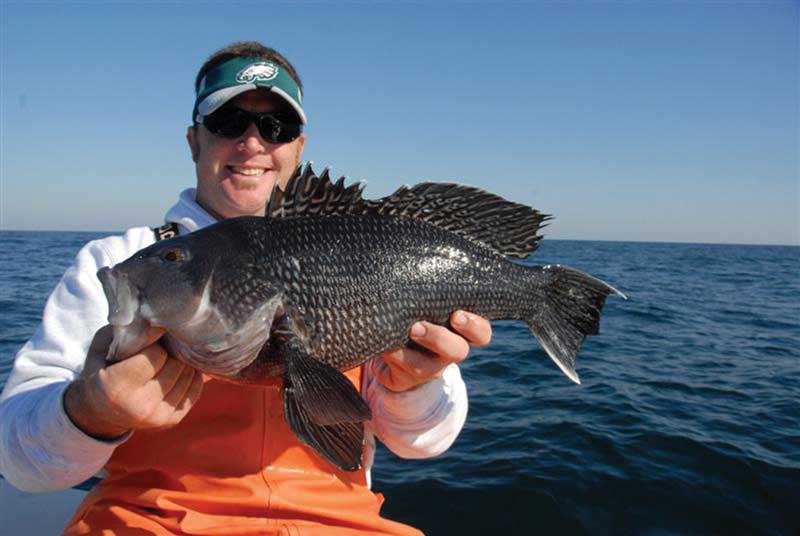If you fish in Maryland, Delaware, or Virginia, your saltwater or tidal water recreational fishing regulations are made by the Mid-Atlantic Fisheries Management Council and the Atlantic States Marine Fisheries Commission. The first is responsible for the federal waters that extend from three miles from shore to 300 miles out. The second group covers waters inside the Three-Mile Limit.

I have served as an advisor to one group or another pretty much since the mid-1970s when I was appointed to represent Delaware recreational fishermen on the State-Federal Striped Bass Advisory Panel. That was my first experience with government gridlock, and it certainly was not my last. The good ideas we had to help the striped bass always ran into problems from state or federal government laws or regulations. In the end, it was Governor Hughes from Maryland who put a moratorium on stripers that saved the day.
Today I serve on the Advisory Panel for Summer Flounder, Scup, and Black Sea Bass; the Advisory Panel for Bluefish; and the State Advisory Panel for Fishing License Funding.
The most recent problem came about when the National Marine Fishery Service decided to cut the recreational catch of black sea bass by 10 percent. At the advisory council meeting prior to the council meeting where this regulation was to be enacted, every person on the panel who spoke said there were more black sea bass out there than you could count. Even the National Marine Fishery Service said the spawning stock biomass was two-and-a-half times above the sustainable level. Then entered the dreaded Marine Recreational Informational Program (MRIP) numbers. These numbers showed recreational fishermen overfished their quota and had to pay back the overage. Hence the 10-percent reduction. The states must plan their regulations to meet these numbers.
I know the MRIP numbers are wrong. The fishery managers know the MRIP numbers are wrong. The problem is that the Magnuson Act says managers must use the best available data. As bad as it is, the MRIP data is the best available. If this sounds completely crazy to you, welcome to the club.
Last December 13, I traveled to Annapolis to attend a joint meeting of the Mid-Atlantic Fisheries Management Council and the Atlantic States Marine Fisheries Commission. I spoke to them of my concern about the very bad data in the MRIP and how it was creating problems for everyone connected to the recreational fishing industry. Once again, I was told their hands were tied since the MRIP was the best available data.
Commercial fishermen have all their fish counted either by weight or by each fish. There is no reason recreational fishermen cannot do the same. Almost all of us have phones that could hold a program where we could send in the data from each fishing trip: how many fish we caught, how long we fished, and where. I’m not talking about spot burning, just the general location: the Bay Bridge, Eastern Bay, Sandy Point, the Target Ship, etc.
Of course, there would be problems getting this program off the ground. Some fishermen would object, as they did when we were getting the saltwater license started. The government would complain about the cost. This would be the same government that happily pays $1000 for a pen that can write in space when a two-cent pencil will do the same thing.
It is going to take a powerful senator or two to make these changes. I was working with Delaware Senator Carper and I thought I was making some progress, but the good senator announced his retirement last week.
Perhaps, the Coastal Conservation Association of Maryland (CCA-MD) might pick up the baton and find someone to move this idea along. I realize their main concern is striped bass and thankfully, the MRIP is not a determining factor in those regulations.
Whatever the future of saltwater recreational fisheries regulations holds, I hope there is some major improvement in how our fisheries managers collect their data on the number of fish we catch.
By Eric Burnley